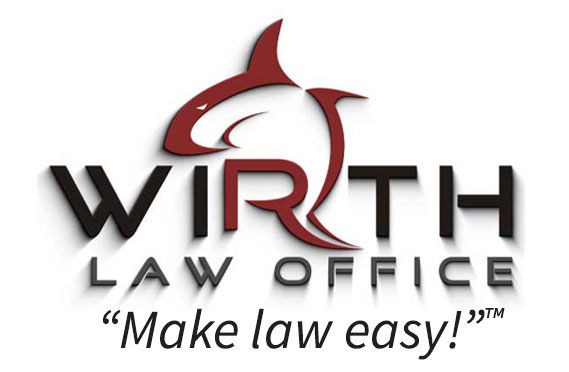 Oklahoma has been touted as one of the most recession-proof states in the country. This provides very little comfort for Oklahomans who are struggling through financial difficulties, though.
Oklahoma has been touted as one of the most recession-proof states in the country. This provides very little comfort for Oklahomans who are struggling through financial difficulties, though.
If you are having trouble paying your bills, you should know that federal and state bankruptcy laws allow individuals and businesses to eliminate or restructure their debt while receiving protection from creditors. Here are a few things you need to know about the difference between Chapter 7 and Chapter 13 bankruptcies.
Types of Bankruptcy
There are generally two categories of bankruptcy proceedings:
1) Liquidation
2) Reorganization
Each has it own set of rules, exemptions and criteria for eligibility that takes into account your income, your assets, how much debt you possess and what type. The bankruptcy strategy you choose will largely depend on which of these you are eligible to pursue.
Chapter 7 Bankruptcy
Chapter 7 bankruptcy, also referred to as “straight bankruptcy,” is the most common type of bankruptcy case. It is available to both individuals or businesses, and it typically lasts from 3 to 6 months.
Chapter 7 bankruptcy belongs to the liquidation category, as it requires debtors to liquidate “non-exempt” assets in order to pay off secured debt and to receive a complete elimination (discharge) of debts not secured by collateral.
Discharge
Normally, credit card debts and other unsecured consumer debts are dischargeable. However, some debts, such as child support, alimony, legal fines and most taxes, cannot be discharged through bankruptcy. Secured debts are also non-dischargeable, and they will typically be settled by the liquidation or repossession of the underlying assets.
Exemptions
Oklahoma law allows certain items, such as clothing, furniture, cars, houses, and other personal belongings, to be exempted from liquidation, up to a certain dollar amount.
For secured debt, such as automobiles and home loans, Oklahoma law gives debtors the option to keep the property by reaffirming the debt; or to have it sold, repossessed or foreclosed to satisfy the debt.
While there is a risk of losing some assets to offset secured debt, most debtors who qualify for Chapter 7 bankruptcy lose very little and receive a complete discharge of their unsecured debt.
Eligibility
To be eligible for Chapter 7, you must pass a court-administered “means test” to insure that you do not have sufficient income to repay your debts. If your income is too high, you may still have the option to file Chapter 13 bankruptcy, provided that the amount of debt you owe is below certain federally-prescribed limits.
Chapter 13 Bankruptcy
Chapter 13 bankruptcy belongs to the category of bankruptcy referred to as reorganization. It involves restructuring an individual’s or business’ debt in order to pay off creditors over a specified period of time.
The Repayment Plan
Under Chapter 13 bankruptcy, the debtor is required to propose a plan to pay off creditors over a 3 to 5-year period, at the end of which he or she will receive a complete discharge of any remaining unsecured debt.
The size of the installment payment the debtor will make during the repayment plan will depend on a variety of factors, such as the debtor’s income, the amount and type of debt and how much unsecured debt would have been satisfied under Chapter 7 bankruptcy.
For secured debts, the debtor is allowed to make arrangements with his or her creditors to make up missed payments by adding them to the proposed repayment plan; and, in this way, the debtor can avoid repossession or foreclosure of the underlying assets.
Eligibility
Individuals and businesses can qualify for Chapter 13 bankruptcy if the amount of debt they possess does not surpass certain federally-prescribed limits, and if they have sufficient income to repay the debt over time.
Is Chapter 7 or Chapter 13 Right For You?
If you have lots of unsecured debt, no way to pay, not much property to be liquidated and you can pass the means test, Chapter 7 bankruptcy can help you get creditors off your back and provide you with a fresh start financially.
On the other hand, if you do not qualify for Chapter 7 bankruptcy, have lots of secured debt, significant assets that you want to keep and a steady income from which to repay your debt, Chapter 13 bankruptcy may benefit you by providing you with relief from creditors and collection proceedings while you reorganize your debt and get your financial affairs in order.
Initial Strategy Session: Wagoner Bankruptcy Attorney
For a low-cost consultation with a Wagoner bankruptcy lawyer, call the Wirth Law Office – Wagoner at (918) 485-0335 (or toll free at (888) Wirth-Law). Or, as always, you may enter a legal question in the form at the top right of this page.







